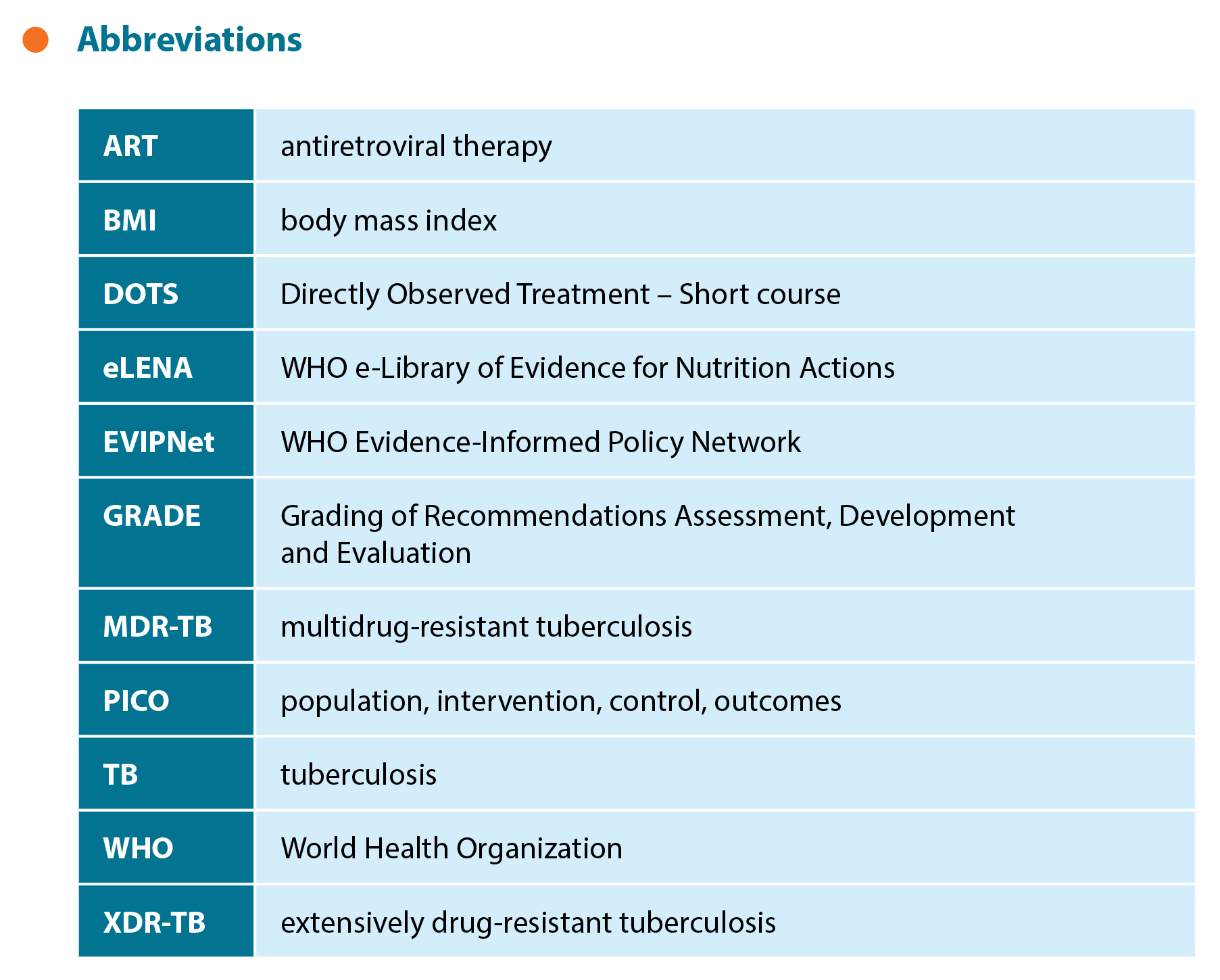6. Recommendations
Nutrition assessment and counselling
- All individuals with active TB should receive (i) an assessment of their nutritional status and (ii) appropriate counselling based on their nutritional status at diagnosis and throughout treatment (strong recommendation, no evidence).
Management of severe acute malnutrition

 Feedback
Feedback